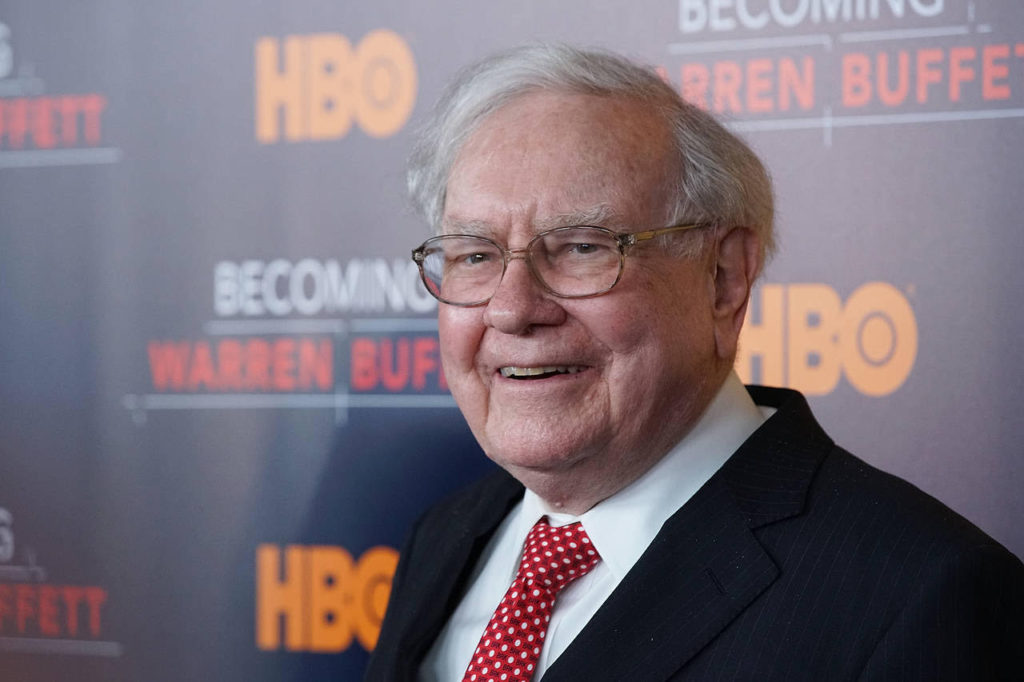
Over the years, there have been some beloved, hated and incredibly famous entrepreneurs. This latter point got me thinking- who are the world’s most famous entrepreneurs, and what exactly sets them apart from the rest of us!
We recently covered the various different types of entrepreneurs, where we hinted that some famous entrepreneurs were each particular type. Today, we thought we’d expand on that!
15. Walt Disney
Practically everyone alive today has heard of Walt Disney, regardless of if they’ve ever watched any of his cartoons. Even more people are familiar with the company he left behind, Disney.
As a boy, Walt Disney was unsure what he wanted to be in life. Eventually, he decided he wanted to work in the entertainment industry, where he soon learned of a new form of film making: cartoons.
Here, he got excited about its prospects and decided to set up his own animation company, which failed due to lack of business and rising costs. However, Walt did not let this stop him, instead, he learned from it and started again.
Walt soon found a better distributor, and produced as much of the animations as he could, himself, rather than employ people to do it for him. Soon, his company became quite successful, producing many cult classics.
Today, Disney’s company is still alive and kicking, still producing many films and animations as it had done under Disney’s own leadership. On top of this, Disney has expanded into other sectors, most famously theme parks with Disneyworld, one of Walt’s own ideas.
Tips from Walt Disney:
- Follow your passions
- Diversify
- Always find a way to innovate
14. Mark Cuban

Mark Cuban is perhaps best known for his role on Shark Tank, where he invests in different business ideas. In the past, he has considered investing the businesses of people like Mikaila Ulmer, Rachel Zietz and Mo Bridges among many others.
However, this is not how Mark Cuban started out. Initially, he started a company in the technology industry, before building it up and later selling it. This funded a series of subsequent businesses.
Among these businesses has been 2929 Entertainment, the Dallas Mavericks baseball team and AXS TV among other things. All of this has helped to make him one of the richest entrepreneurs of recent decades!
Tips from Mark Cuban:
- Due diligence is key
- Never overleverage debt
- Leadership is key
13. Peter Jones
For the most part, Mark Cuban keeps his investments stateside. On the rare occasion he does invests outside of the US, it is relatively small, and is usually in a neighboring country such as Canada or Mexico.
By most accounts, Peter Jones is the UK’s equivalent of Mark Cuban.
At the age of 16, Peter Jones dropped out of school to set up a tennis academy- a sport he was (and still is!) very good at. Eventually, this became quite successful and he later sold it to fund a new venture.
This venture was a PC-manufacturing company. Initially, it was quite successful, however, his company soon went into bankruptcy as his customers failed to pay for their PCs.
With this, Peter Jones was forced to give up his nice lifestyle, and move back in with his parents. Here, he worked for engineering firm Siemens-Nixdorf, where he saved every penny he didn’t spend.
Using this money, Peter Jones founded Phones International Group, which has since become one of the largest telecommunications companies in Europe!
Peter Jones also hosts the UK’s equivalent of Shark Tank, known as Dragon’s Den. Here, he almost solely invests in the enterprises of kidpreneurs. Peter also hosts the American show The American Investor.
Tips from Peter Jones:
- Start young
- Never forget your roots
- Resilience always pays off
12. Andrew Carnegie
As a boy, Andrew Carnegie was never expected to become rich. He was born into a poverty-stricken family in Scotland, who then managed to travel to the US to start from scratch.
Whilst living in the US, Andrew Carnegie held numerous odd jobs, including as a bobbin boy and as a telegraph messenger. Most of this money went to help feed his family, but Andrew was fortunate to be able to save some of it too.
Using the money he saved, Andrew was able to invest in local messenger service Adams Express Company, which he soon sold for a large profit. Here, he invested all of his money in the railroad industry, just as the Civil War was starting.
From his railroad profits, he invested in oil and steel. Overtime, this made him an incredibly wealthy man, with Carnegie steel becoming one of the largest companies in the entire US!
In his later years, Andrew Carnegie wrote the Gospel of Wealth, which became a bestseller, yet fell of deaf ears initially. Essentially, it said that the richest men in society had an obligation to use their money for good.
Tips from Andrew Carnegie:
- Always try to find that “good” deal
- Don’t forget to give back
- Build! Build! Build!
11. Steve Jobs
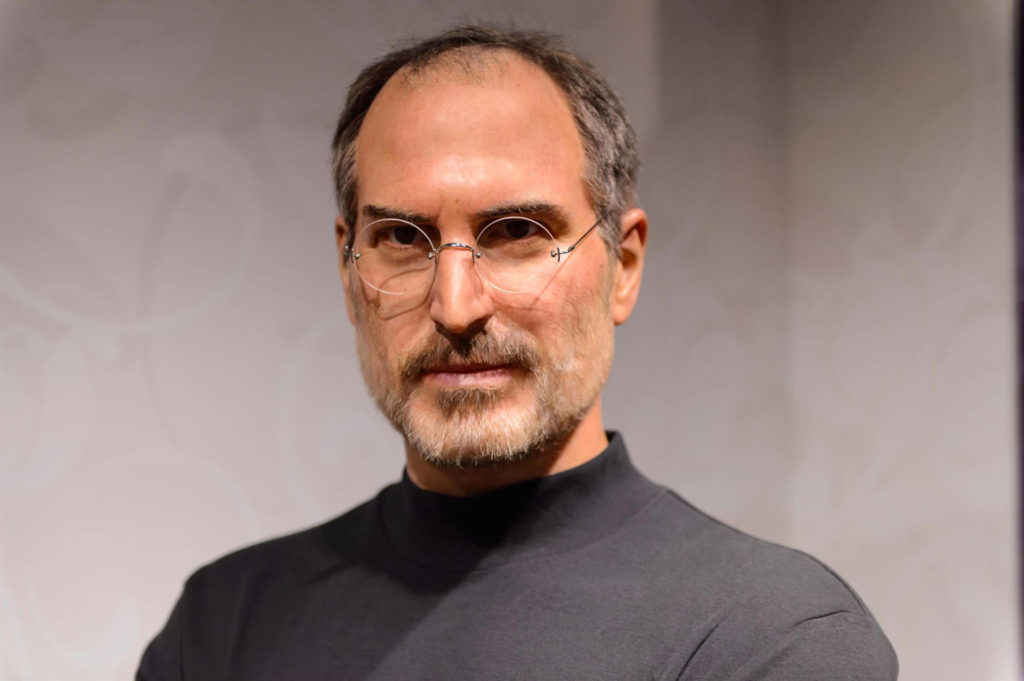
How could any article on the world’s most famous entrepreneurs not include Steve Jobs? After all, he is the reason why we have much of the technology we do today, ranging from phones to IPods, to IPads to IMacs!
In 1972, Jobs dropped out of university and became a technician for computer gaming company Atari (yes that Atari!) Here, Jobs met fellow technician Steve Wozniak, who was similarly giften with computers.
The two began the idea that they could build their own computers and sell them for a profit, which soon mothballed into Apple Computers. The company did quite well, as Jobs was the faceof the business, whilst Wozniak was the brains.
Jobs eventually left Apple to found NeXt Computers, which Apple soon bought out, in order to bring Steve Jobs back as Apple CEO. In 1986, Steve Jobs bought “The Graphics Group” which was later bought by Disney, and renamed Pixar Animations.
Tips from Steve Jobs:
- Don’t be afraid to upset people
- Don’t just stick with one company (if you don’t want to)
10. Donald Trump
In all honesty, I actually spent a while debating whether or not I should include Donald Trump as one of the world’s most famous entrepreneurs. After all, he is famous, but he’s not necessarily an entrepreneur.
Whilst attending Wharton School of Finance, Trump worked at his father’s real estate company in an unofficial capacity. In 1971, he joined it officially as the company’s new president, taking over from his father, Fred.
Here, he expanded the company into one of the largest real estate companies in the US. Eventually, he began to diversify into area such as casinos, airlines, winery, steak and vodka among others.
In the 1990’s, business was bad for Trump, and he ended up in $9 billion in debt. To get himself out of this, he had to sell many of his businesses. On top of this, Trump became the host of The Apprentice in 2005.
Using his position as a successful entrepreneur/businessman, Donald Trump has managed to fund several presidential campaigns, one of which landed him in the White House (regardless of what you may think of him!)
Tips from Donald Trump:
- Diversify
- There’s always a way out
- Elegance over simplicity (sometimes)
9. William Randolph Hearst
To many outside the US, or at least those unfamiliar with American media, the Hearst name probably draws a blank. However, in the US, the Hearst family’s progenitor, William Randolph Hearst is a media maverick!
As a child, Hearst’s father was a newspaper owner-turned Senator. When his father chose to run for office, Hearst Sr. gave his son control of The San Francisco Examiner. Here, William Randolph Hearst changed the paper immensely.
Hearst got rid of most of the writers and editors, replacing them with new, fresh talent. This saw a large rise in circulation, and Hearst soon expanded into neighboring areas, buying out failing newspapers, and doing the same.
Over time, Hearst expanded his empire to constitute the entire US, using his base to influence most of America (with 30 million readers per day!) Hearst soon expanded into other areas, such as magazines.
Today, Hearst Communications, the company that Hearst founded, is still alive and well (and still ran by the Hearst family!) Although, it now focuses on magazines rather than local newspapers.
- Seize the opportunity
- Knowledge is power
- Don’t overdiversify
8. Carlos Slim
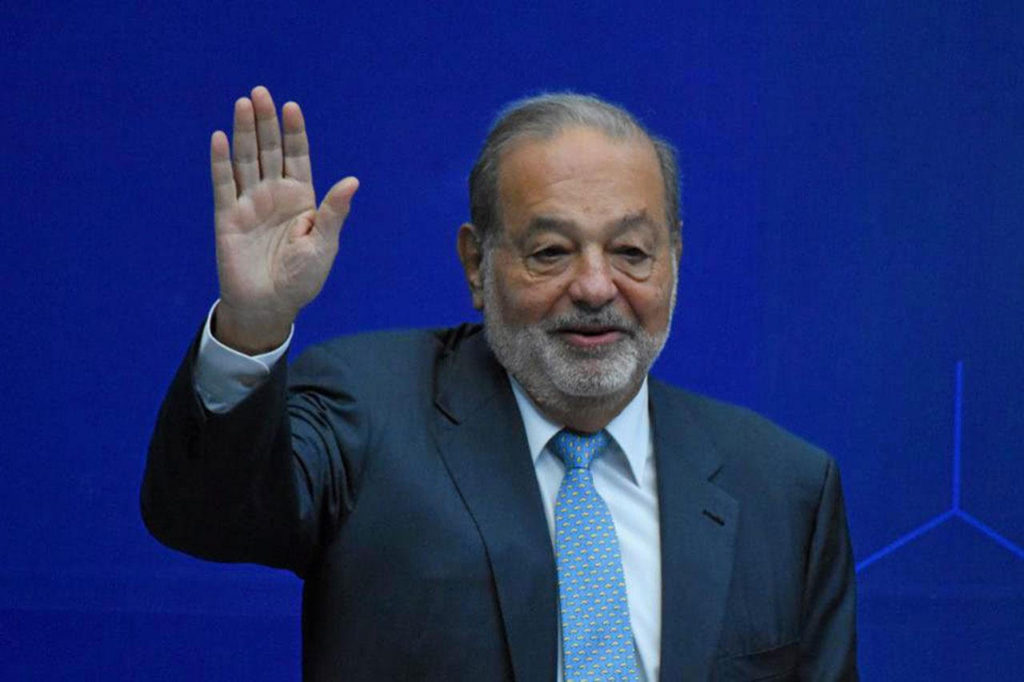
When he was eight, Carlos Slim’s father had him working in the family’s small shop as clerk. Here, he was paid relatively little, and had to work for every penny he earned.
Upon the death of his parents, a young Carlos was the inheritor of his family’s sizable real estate holdings and their shop. Using this as leverage, Carlos took out several loans to found a found company- Grupo Carso.
Grupo Carso was made up of several divisions, such as real estate, tobacco, railways, mining and restaurants (among others). In the 1980’s, Carlos Slim sold his stake in Grupo Carso for a considerable profit.
Using this money, he acquired many more companies, in many of the same industries as before, even at one point owning the famed Sears department store.
Using the profits from these newly acquired companies, Carlos Slim has diversified into the telecommunications industry. Slim combined many of these companies, such as Telemex, Bell Canada and France Telecom into one large partnership.
Tips from Carlos Slim:
- Don’t just stay in one country
- Start young
- Invest in what you know
7. Sir Richard Branson
In recent years, Sir Richard Branson’s empire has sometimes had a hard time keeping itself together. With this, a lot of media attention has been placed on that struggling business, and on Richard Branson himself.
All of this has helped to make Richard Branson arguably one of the world’s most famous entrepreneurs in recent decades!
Sir Richard first started his business empire in 1966, when he established a local student magazine. This magazine was wildly successful, with Sir Richard selling it later on to fund the business he owns today: Virgin Group.
Virgin Group has been active in hundred of different industries, ranging from record labels to home internet, to retail, among countless others.
Perhaps Virgin’s most famous subsidiary is Virgin Atlantic, Branson’s flagship company. Virgin Atlantic was established in 1984 after a vacation flight was delayed, and Branson was forced to charter a jet to get home.
This inspired him to establish a new airline.
In recent years, Virgin has also attempted to be the first to make commercial space travel available, through their subsidiary Virgin Galactic, which hopes to combine space travel and airlines into one thing.
He hopes that one day, you’ll take your vacation on Mars, rather than in Europe!
Tips from Richard Branson:
- Start small
- Don’t be afraid to dream big
- Build! Build! Build!
6. Warren Buffett
Warren Buffett is known for being one of the world’s most famous investors, and arguably its greatest (sorry Ben). As a child, Buffett grew up as the son of a well-known local stockbroker-local politician.
At school, Warren would buy coca-colas, chewing gum and chocolate bars and sell them to his classmates. In the evenings, Warren would read vivaciously, in between selling magazine subscriptions in his local area.
Over time, Warren read Benjamin Graham’s The Intelligent Investor, and began applying its principles to his own life. At the age of eleven, Buffett bought six shares of Cities Service stock for $38 per share, before selling them for $40 per share.
As he got older, Warren continued to buy and sell shares using his “Cigar butt” method of investing. Not particularly great companies but ones that were still good for “one last puff”.
Eventually, Warren got into the insurance industry, buying shares in textile mil Berkshire Hathaway, and turning it into a conglomerate. Today, Buffett is regarded as one of the savviest investors, as well as owning the largest insurance conglomerate in the world!
Tips from Warren Buffett:
- Start young
- The past is prologue
- Know when to get out
5. John D. Rockefeller
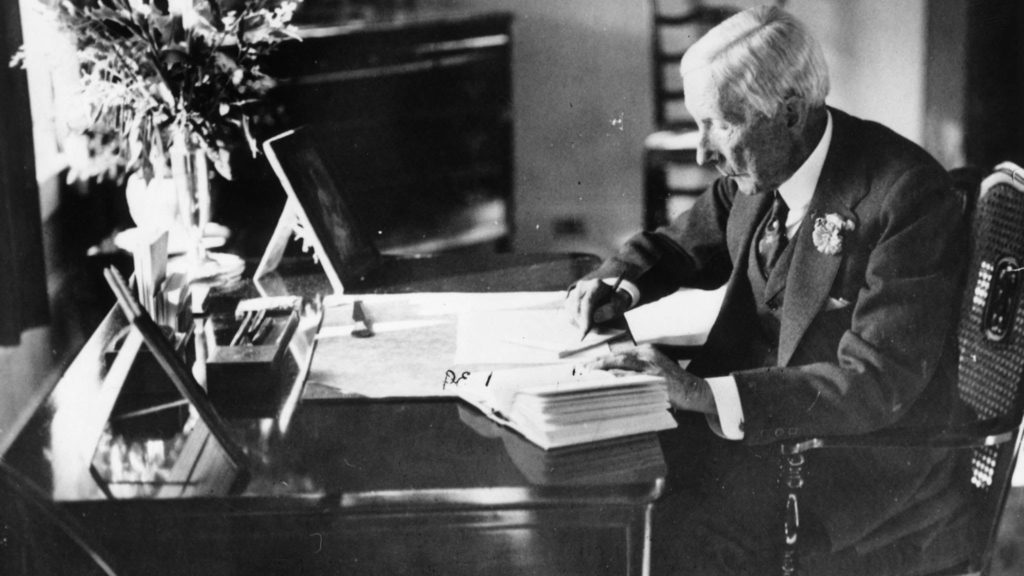
Today, John D. Rockefeller is world renowned for being an extremely successful and famous entrepreneur. This was the same case when Rockefeller was alive, being renowned for being the richest man in America.
As a teenager, Rockefeller found a job as a bookkeeper for a local produce store, a job he was quite talented at. Soon, he essentially ran the business on their behalf, where naturally he asked for a raise. The owners denied this.
Angry, John left and set up his own produce store in 1859. This business was wildly successful, helped partly by the American Civil War, and John eventually sold it to fund a new venture.
This new venture was the refining of oil, something that was not new in the US at the time. However, the fracking process created a lot of “waste” which was thrown away. John found new uses for it, and sold it on.
Eventually, buying the “waste” was not enough, and John went into the refining of it too. From here, he established Standard Oil, which bought out its competitors to become the largest oil company in the world, before being broken up in 1911.
Tips from John D. Rockefeller:
- Don’t do what everyone else does
- Give back
- Do whatever it takes to succeed
4. Bill Gates
Bill Gates is arguably one of the world’s greatest philanthropists and most successful entrepreneurs in recent years. Due to his success, he was the richest man in the world for a long time, although is currently #2.
When Bill was 13 years old, he was first introduced to computers. As with many in his generation, Bill was enthralled by them, decided then and there that it was what he wanted to do in life.
After high school, Bill, studied at Harvard before leaving in order to pursue his first business, which failed due to a lack of interest. This did not stop Bill nor Paul Allen, who soon went at it again, this time founding Microsoft.
Microsoft proved to be incredibly successful, with both Bill Gates and Paul Allen becoming billionaires as a result of it. Since its founding, Microsoft has made both hardware and software.
In recent years, it has expanded beyond just laptops and pcs into things like smartphones, which failed.
Tips from Bill Gates:
- Start young
- Failure is necessary for improvement
- Don’t forget to give back
3. Henry Ford
When it comes to the world’s most famous entrepreneurs, it’s hard not to include Henry Ford. Even today, when you think of an American car brand, you think of Ford. This is the work of Henry Ford.
As a child, Henry Ford would take apart watches and put them back together again for no other reason than he was curious. Over time, he learned how to repair them, and began a side business doing so.
As an adult, Ford became an apprentice to the James F. Flower & Bros company, and eventually for the Detroit Dry Rock Company. Here, he began to design his first automobiles, which were eventually bankrolled by William H. Murphy in 1899.
However, his first automobiles were of relatively low quality in Ford’s eyes and on top of that, had much higher prices than its competitors. As such, Ford sold relatively few. Ford got into a lot of debt trying to fund his second automobile.
Ford struggled to pay back these loans, until investors intervened. Here, they funded several high quality, but cheap automobiles. Over time, Ford specialized his workers to get the most out of them and created the modern work week!
Tips from Henry Ford:
- Don’t forget to innovate
- Streamline everything!
- Don’t settle for anything less than “Perfect”
2. Jeff Bezos
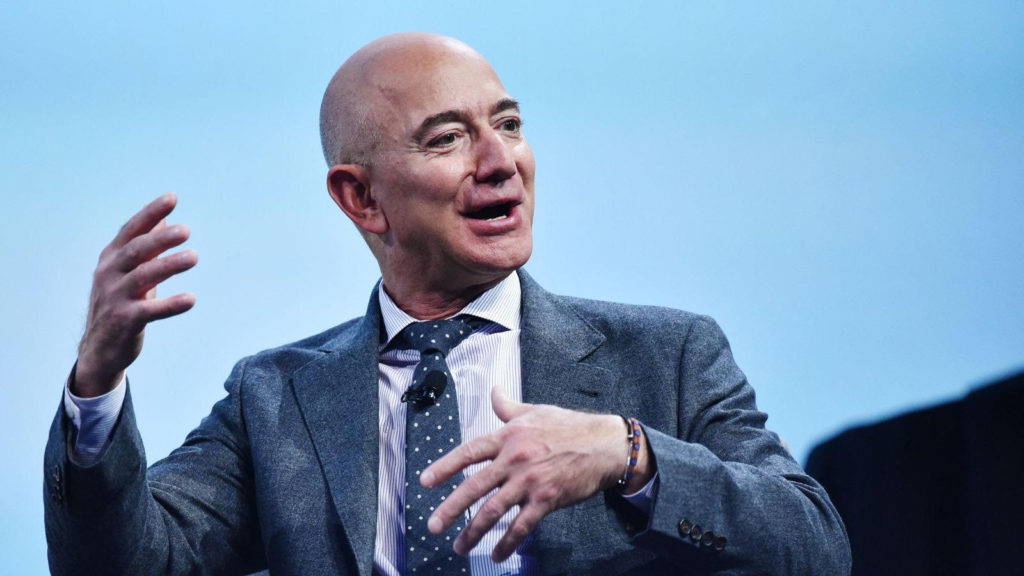
Over the last ten years or so, Jeff Bezos has arguably been one of the most beloved, hated and famous entrepreneurs of the 21st century. Regardless, he’s probably the perfect example of an entrepreneur you should look up to!
Bezos’ mother was only 17 when she gave birth to Jeff, with her balancing between being a mother and going to school. As a child, Jeff was well regarded for being intelligent, often tinkering with and inventing new gizmos each week.
After graduating high school and eventually Princeton University, Jeff began working for Exxon. Here, he began to conceive the idea for what would eventually become Amazon, before flushing the details out on a road trip.
Bezos’ idea sat well with a few investors, who bankrolled Amazon initially. Over time, as more people began to use the internet for shopping, Amazon’s profits increased exponentially, as did Bezos’ wealth.
Tips from Jeff Bezos:
- Don’t let others stop you
- Follow your passion
- Don’t be afraid to be “first”
1. Elon Musk
Elon Musk is one of those entrepreneurs that you either respect the hell out of, or despise with every cell in your body. Regardless, he is one of the most famous and successful entrepreneurs you’ll ever come across!
Originally born in South Africa, Elon Musk emigrated to Canada and eventually to the US. Here, Musk and the lesser known Greg Kouri established X.com, one of the world’s first online banks.
In March 2000, Elon Musk merged the company with Confinity forming what is now known as PayPal, before selling it off to eBay in September 2001 for $1.5 billion.
Using his share of the money, Musk helped to establish Tesla (although some dispute this fact) and SpaceX. During the Great Recession, Tesla and SpaceX were struggling financially, and Musk took a large gamble trying to save both, which worked.
Tips from Elon Musk:
- Diversify
- Take calculated risks
- Don’t be afraid to compromise
Which of these famous entrepreneurs do you like the most? Why? Tell me in the comments!


